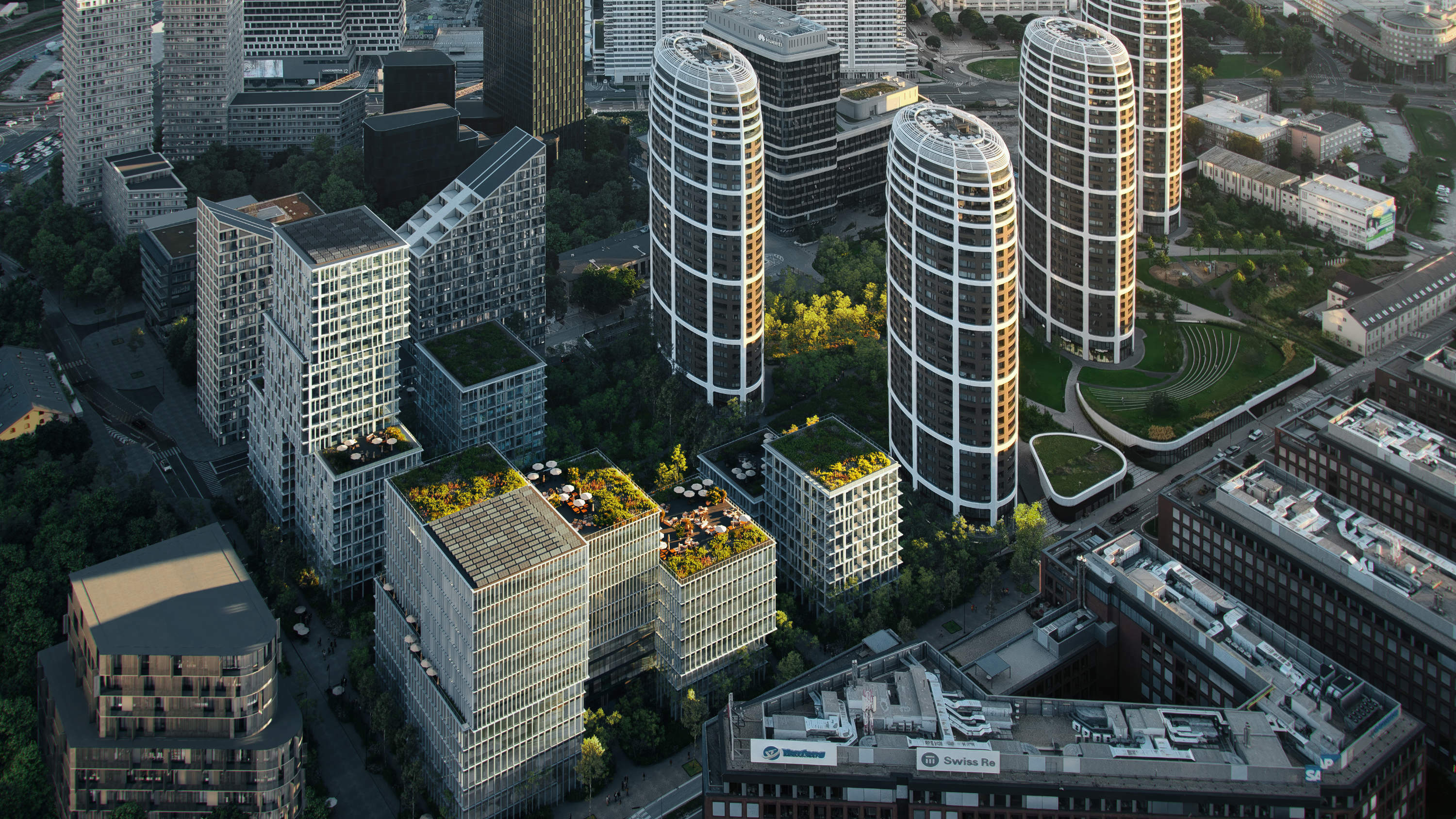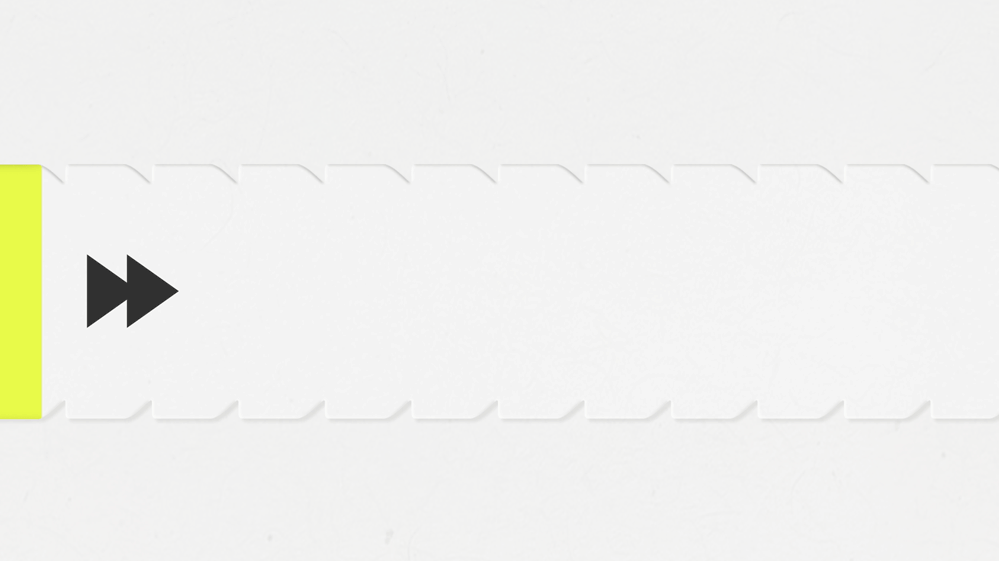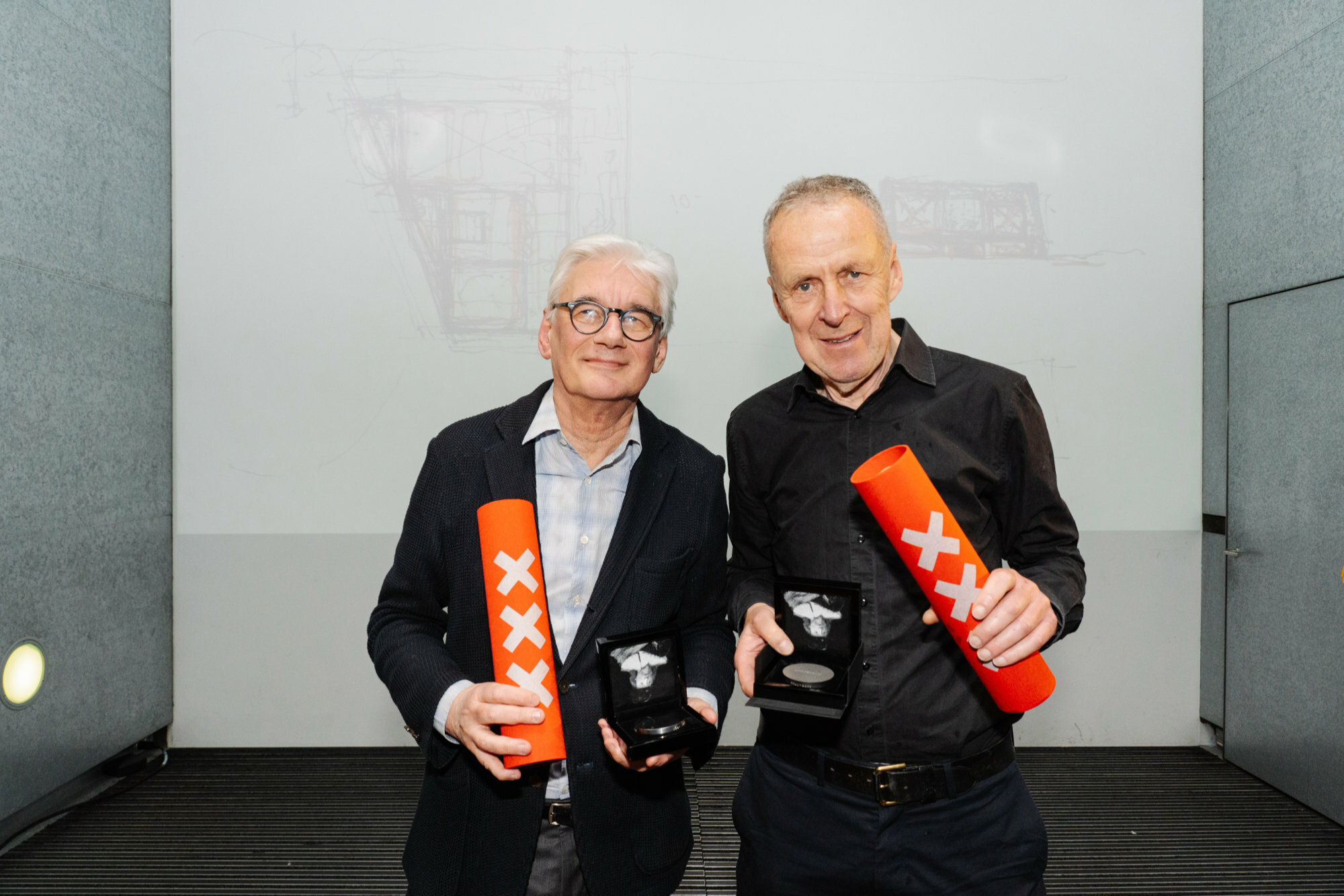The design of the Rotterdamsebaan with the most sustainable tunnel in Europe is an example for modern infrastructure
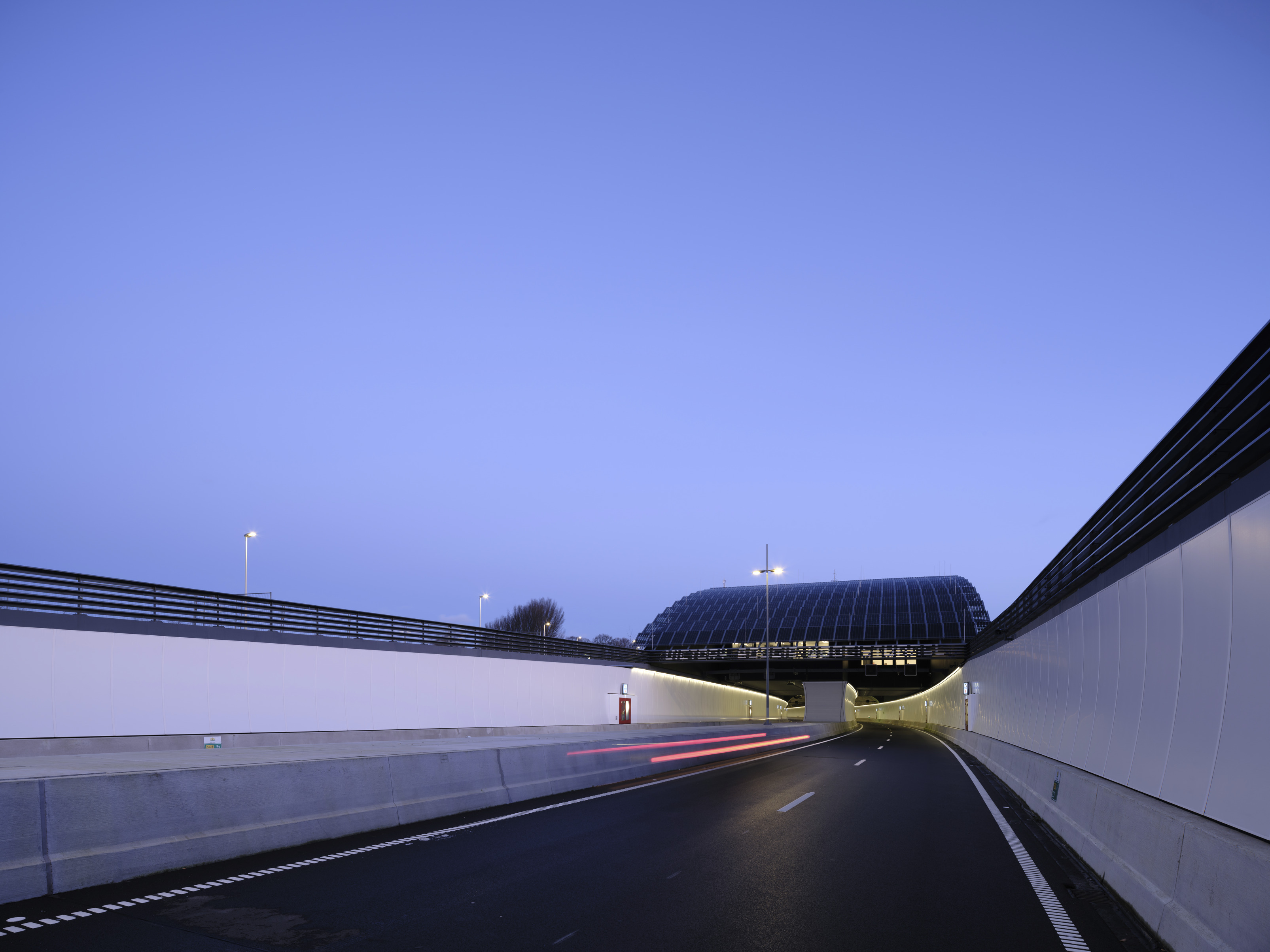
The Rotterdamsebaan opened last Saturday. This new road connects the ring road of The Hague with highways A4 and A13. Part of the Rotterdamsebaan is the 1.8 kilometer long Victory Boogie Woogie tunnel; the most sustainable tunnel in Europe. Benthem Crouwel Architects, Paul de Ruiter Architects and Lanschappartners jointly signed for the design commissioned by Combinatie Rotterdamsebaan, consisting of BAM and VolkerWessels, companies Van Hattum en Blankevoort, KWS and Vialis.
A DURABLE DESIGN
The Rotterdamsebaan is a prime example of sustainable infrastructure in the Netherlands. Throughout the whole design process, the architects made choices to maximize the sustainability of the project and minimize the nuisance for the environment. For example, special concrete gutters at the side of the road absorb the noise and direct it upwards instead of sideways, and in the Victory Boogie Woogie tunnel, the fine dust from the cars is filtered at the tunnel entrances, resulting in approximately 50 percent less fine dust emission. The service building runs entirely on self-generated energy from the solar cells on the sloping roof of the building, and these solar cells also function as a light filter that prevents drivers from being dazzled by sunlight when they enter or exit the tunnel.
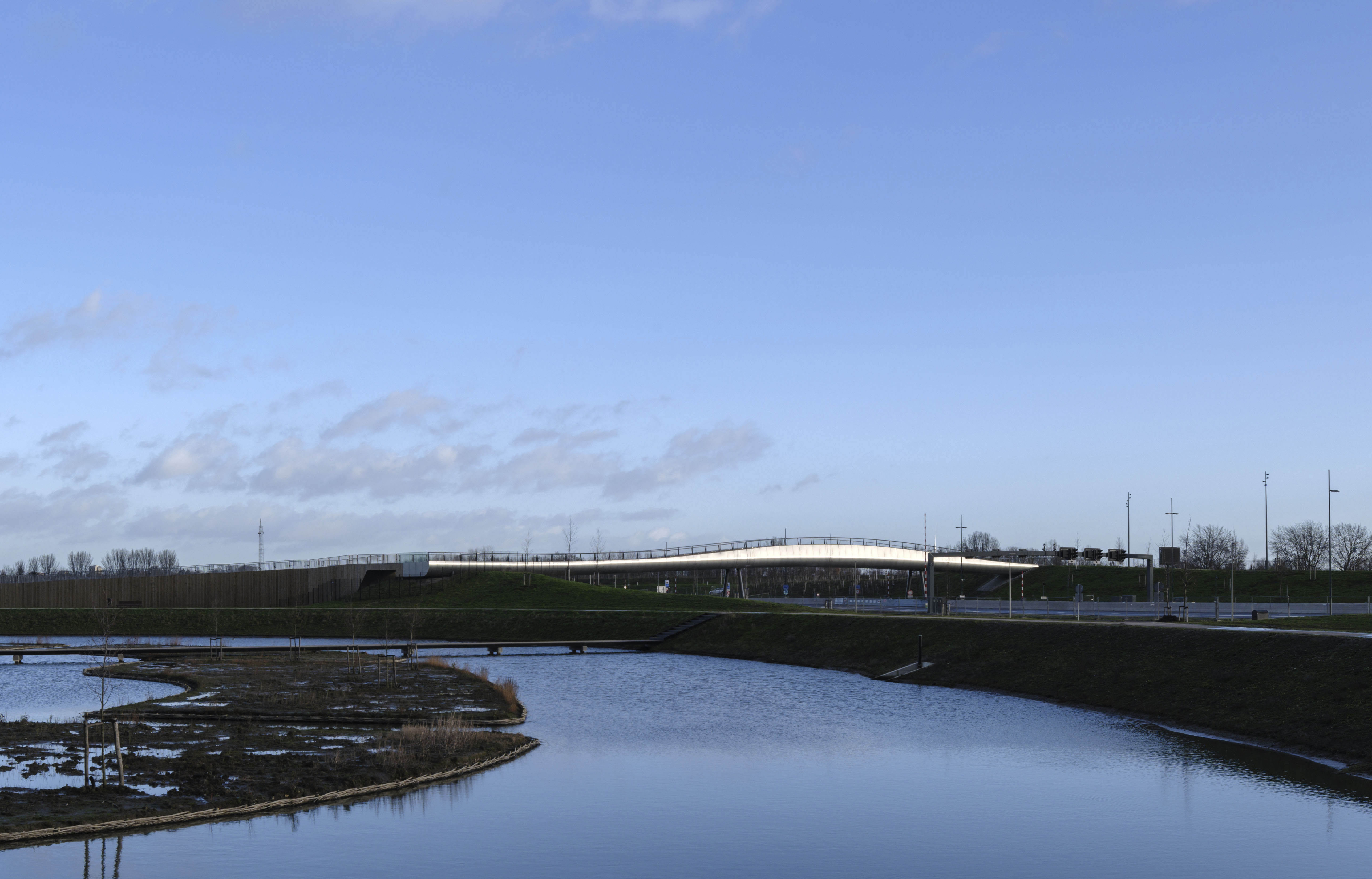
EMBEDDED IN GREEN
The integration of the route into the landscape was central to the design of the Rotterdamsebaan. By having part of the route run underground, the existing green structure remained intact and a new piece of park could be added, the Molenvlietpark. The park is accessible by footpaths and small pedestrian bridges that lead you past reed land, flowery lawns and water features with nature-friendly banks. The sloping shape of the service building blends into the landscape and the vegetation overgrows the building at the park-side, which makes the traffic from the Rotterdamsebaan almost invisible from the park. The wide variety of vegetation with walking routes, picnic places and (nature) play areas is a green asset to the urban landscape of The Hague and its biodiversity.
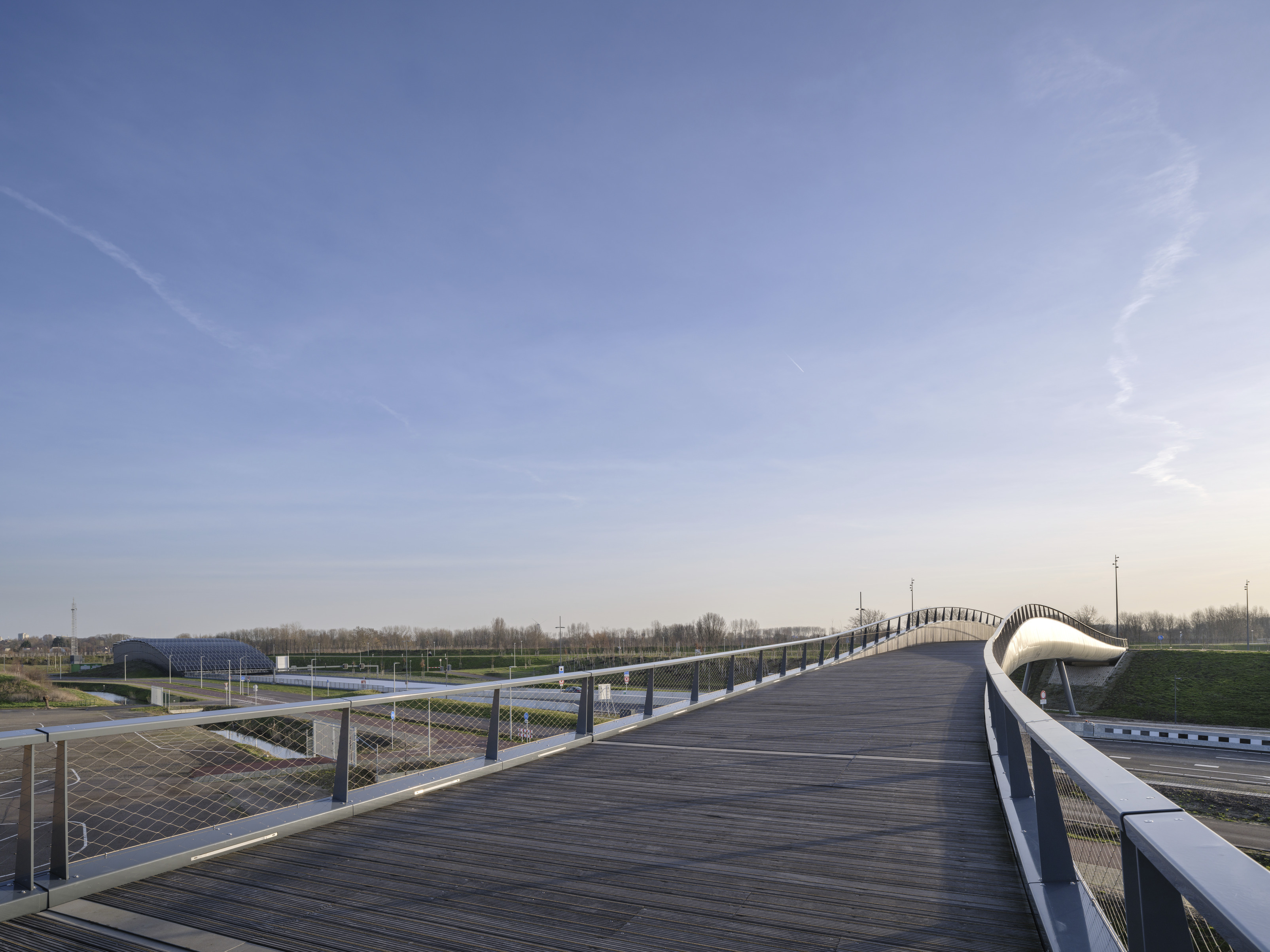
CROSS OVER
The new pedestrian bridge that connects both sides of the Rotterdamsebaan forms a new entrance to the Drievliet family park. The bridge has a sleek, polished aluminum exterior which reflects the colors of the environment and a warm, natural interior with a sustainable wooden deck. In the center of the bridge, the balustrade is raised, which dampens the noise of the road and provides a comfortable, enclosed feel. When the bridge reaches the green landscape, the balustrade is lowered to provide a wide view over the surrounding greenery.
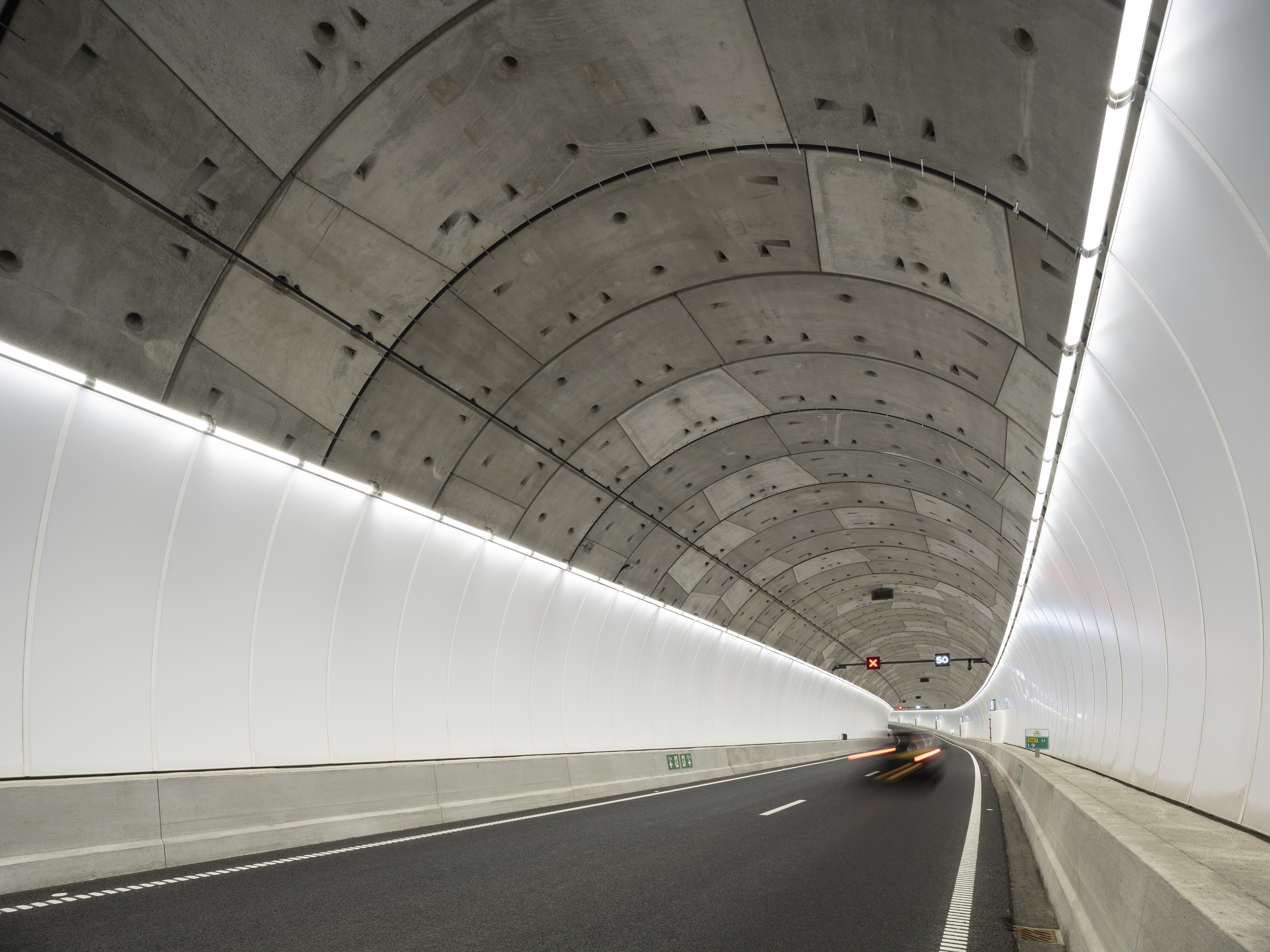
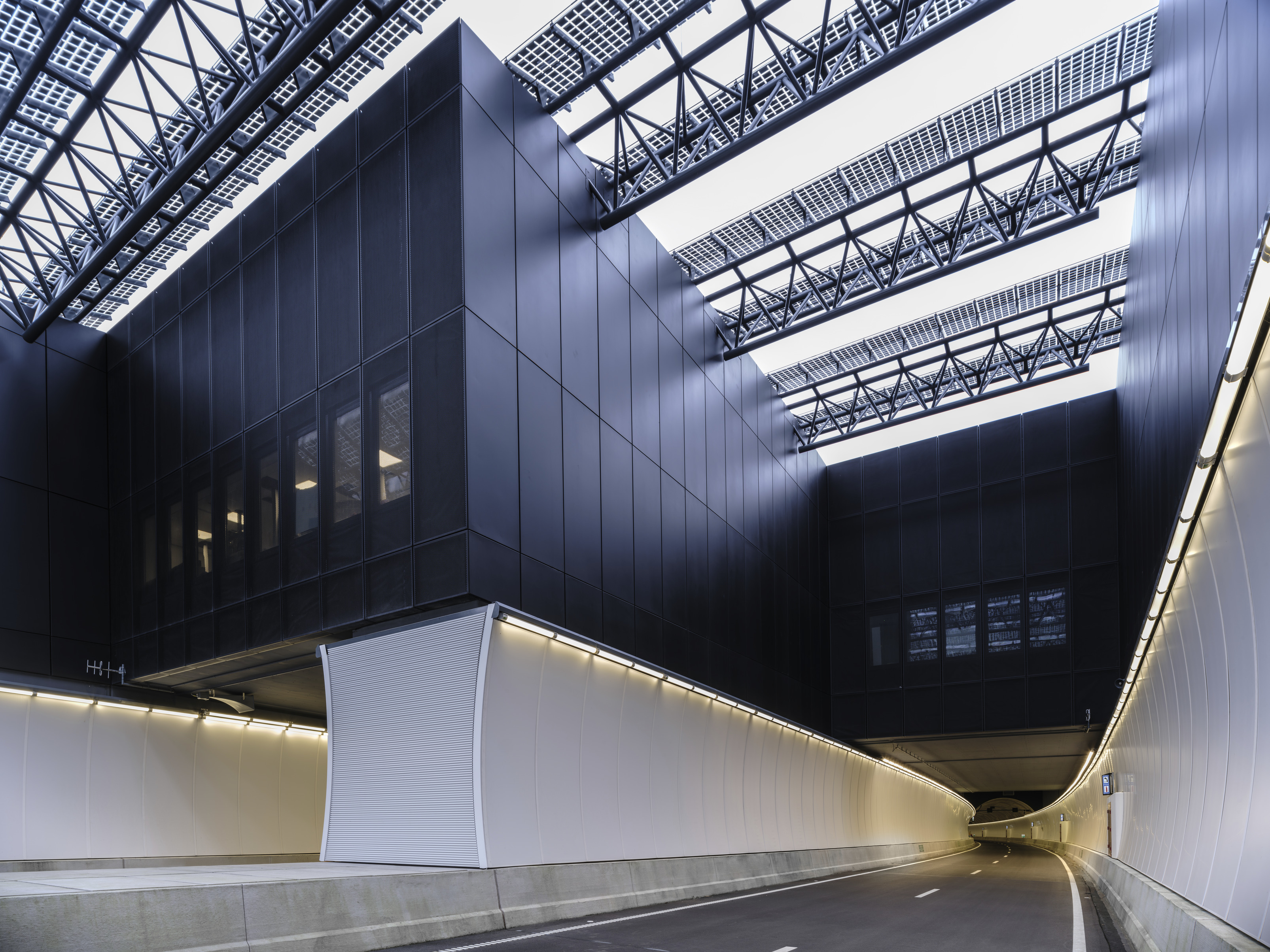
STREAMLINED ROUTE
In the design, Benthem Crouwel Architects and Paul de Ruiter Architects have brought together the perspective of the driver and the pedestrian in an exciting contrast between form and material. Drivers will experience the Rotterdamsebaan as a clear route with a unique and consistent design. Above ground, the route is defined by its characteristic railing of wing-shaped lamellae. The underground route feels streamlined and calm with the guiding line of LED lights that are reflected by the white curved walls. The modified lampposts are a recognizable nod to the ship's masts in the nearby ports.
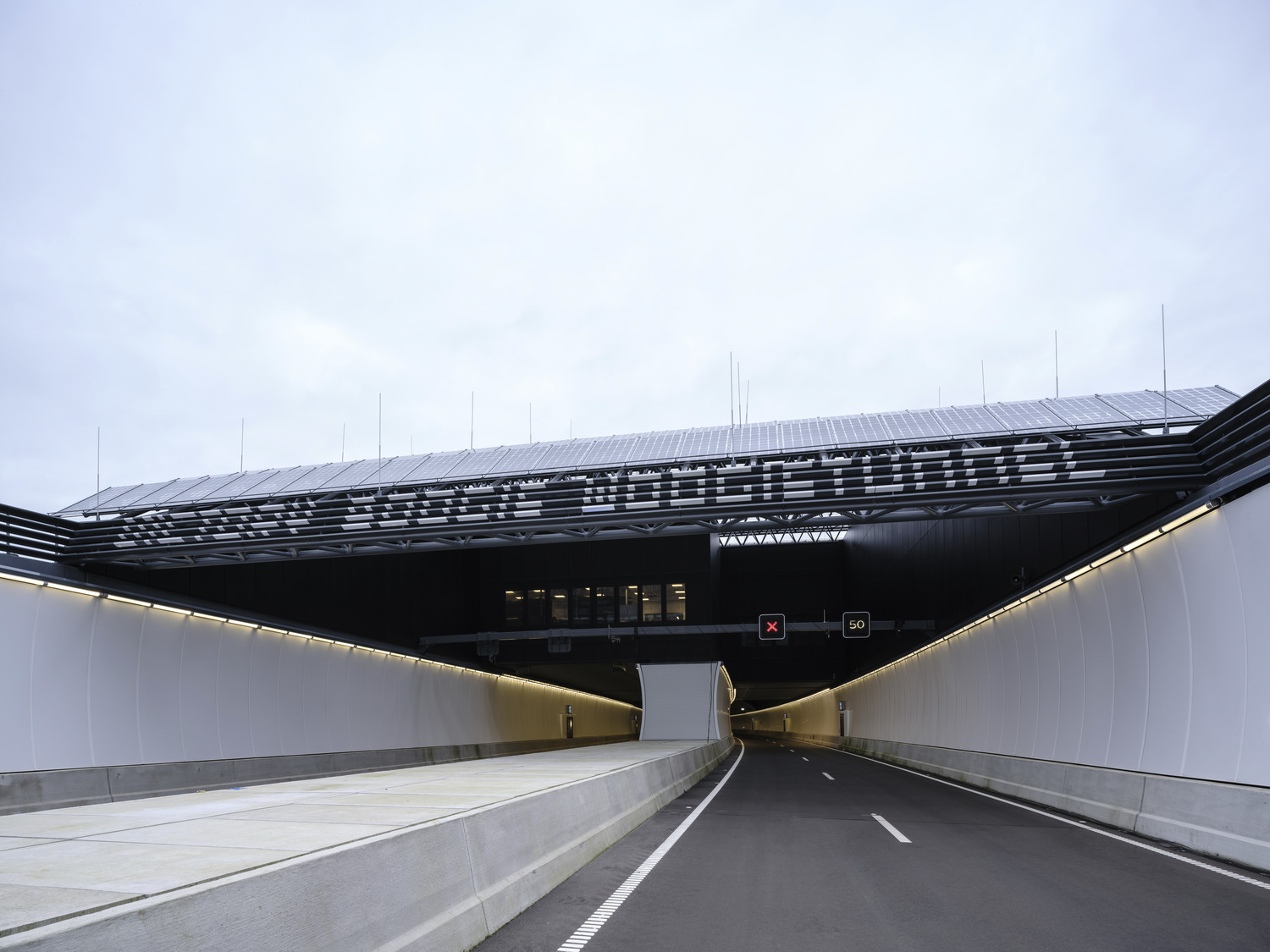
VICTORY BOOGIE WOOGIE
The striking name of the tunnel refers to the painting; Victory Boogie Woogie by Piet Mondriaan that is part of the collection of Kunstmuseum Den Haag. The lettering on the fragmented lamellae of the service building is designed by Het Lab who designed the font in line with the concept of the painting and executed it in reflective foil, adding to the dynamic of the tunnel. The Victory Boogie Woogie tunnel is located at the top of the Binckhorst, an industrial district on the edge of the center of The Hague. In the coming years, the Binckhorst will be transformed into a green and attractive neighborhood to live and work. The central location between The Hague, Voorburg and Rijswijk makes the Binckhorst a top location for urban development.
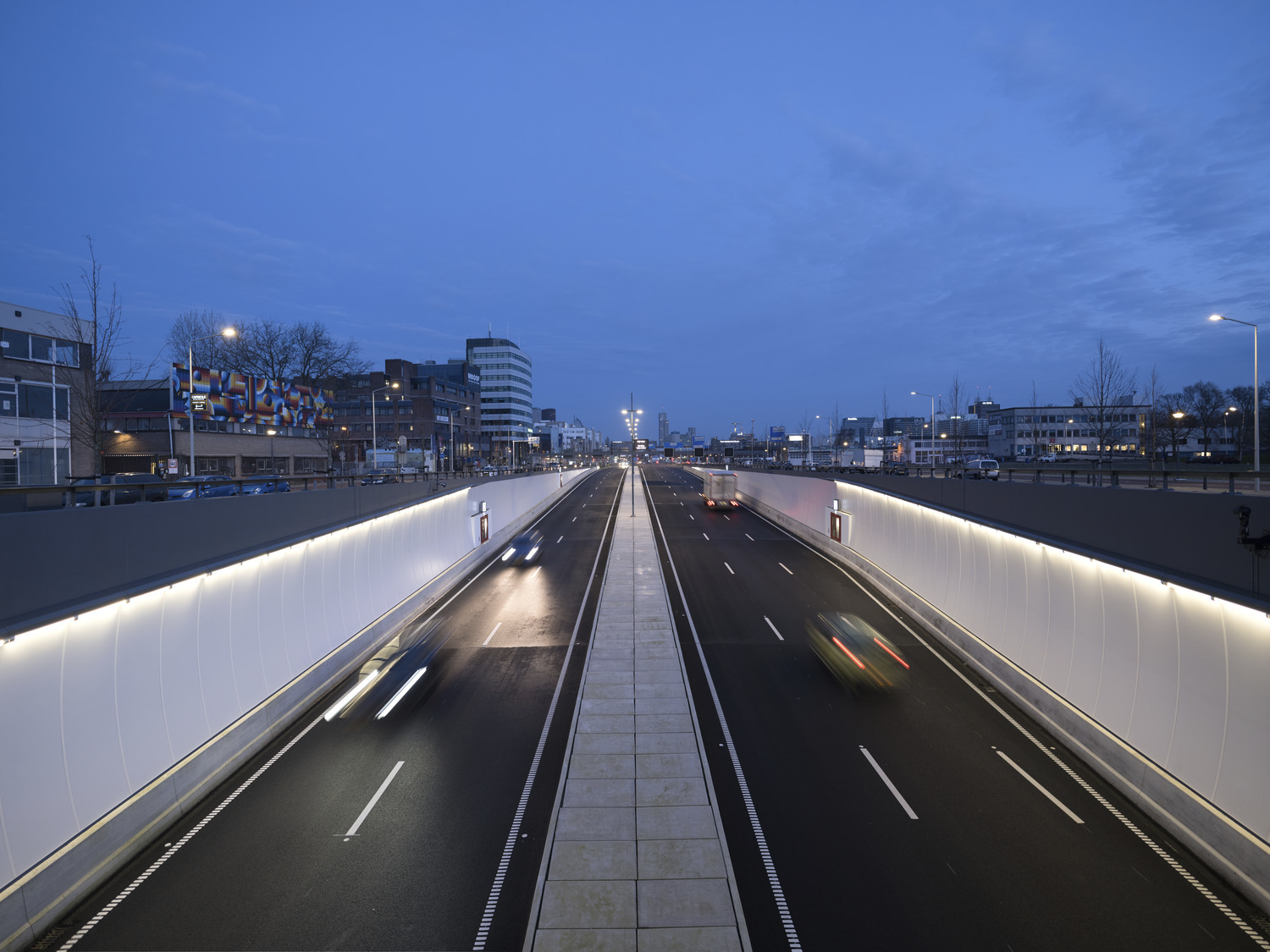
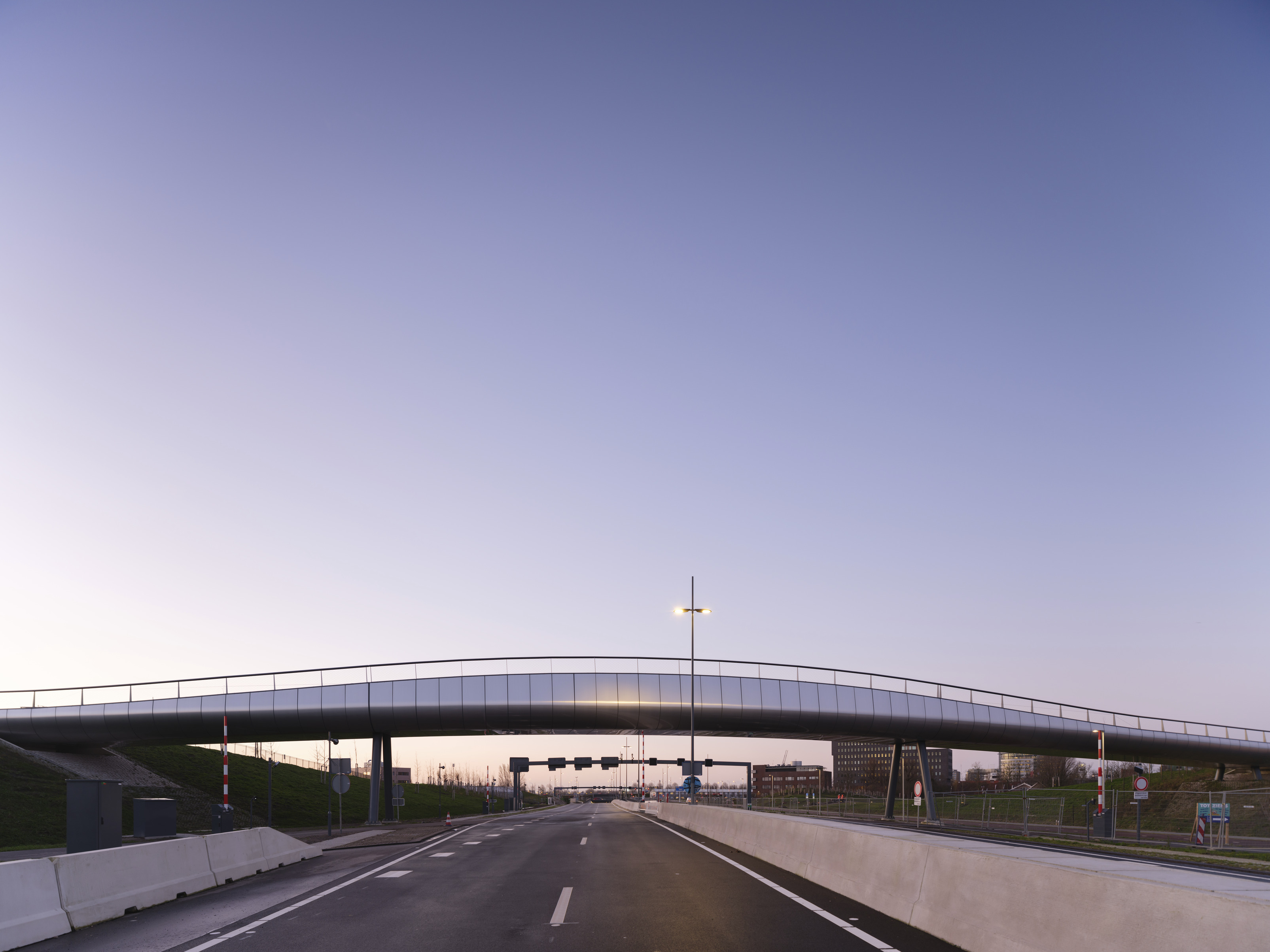
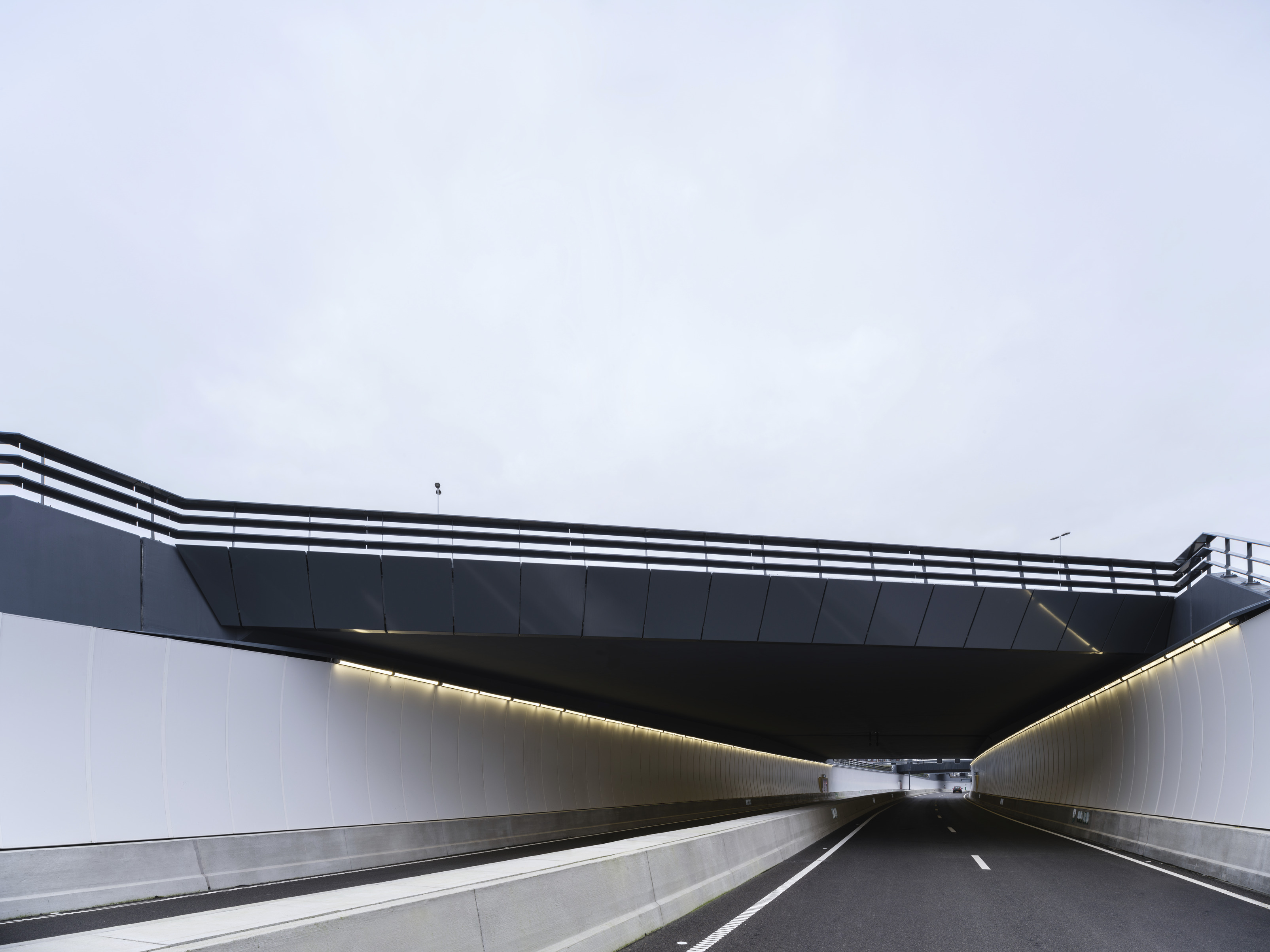
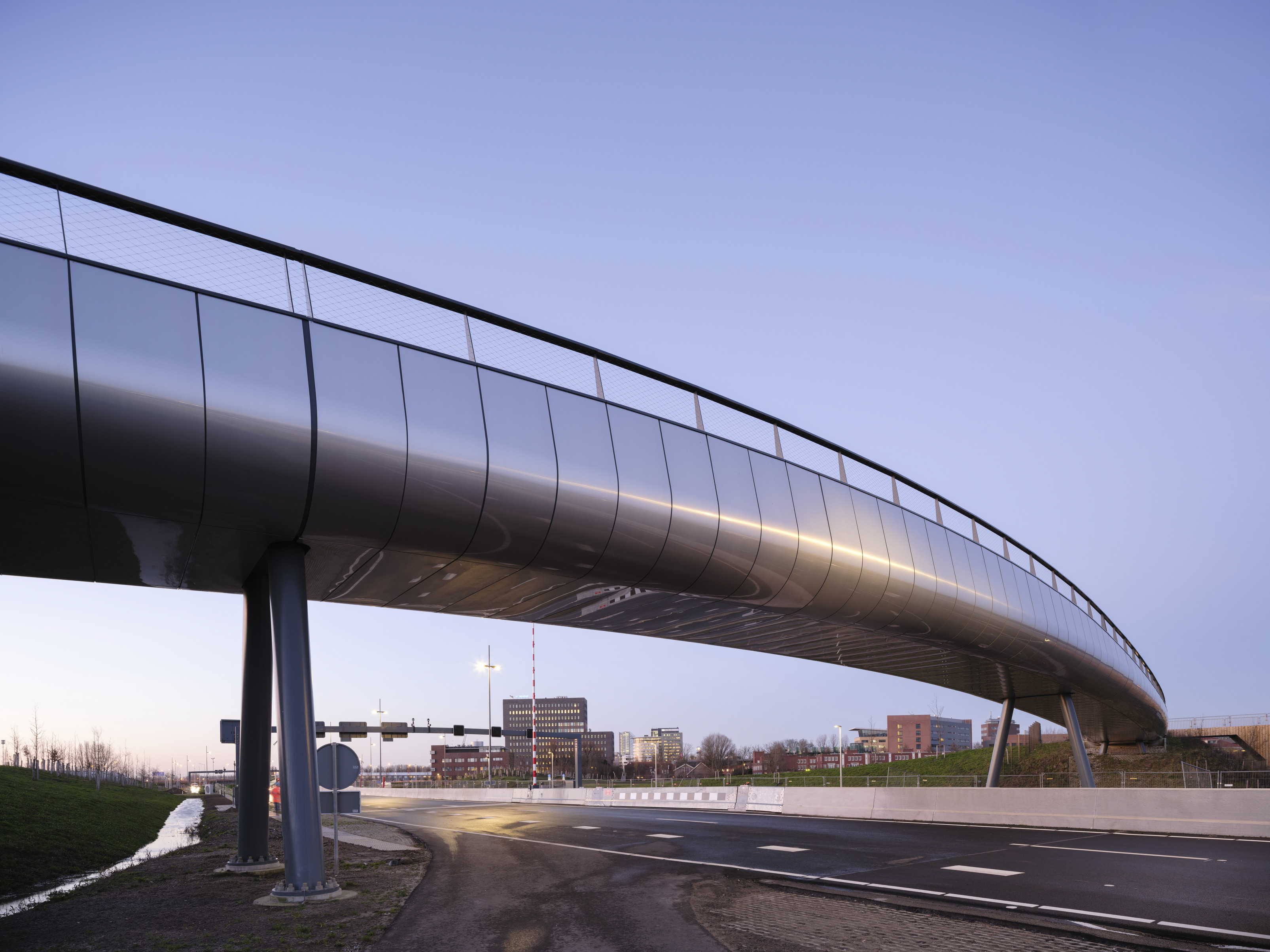
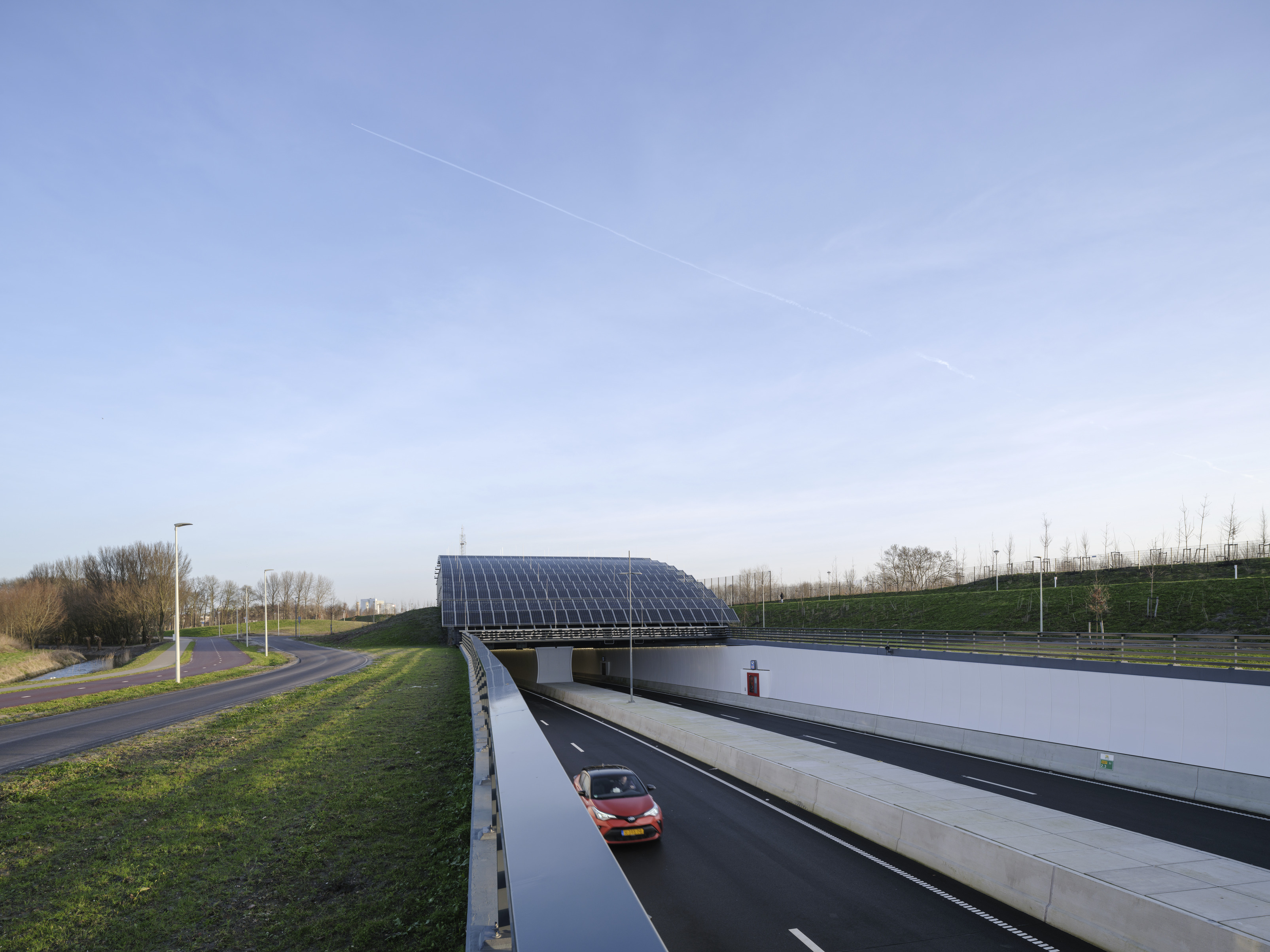
—
